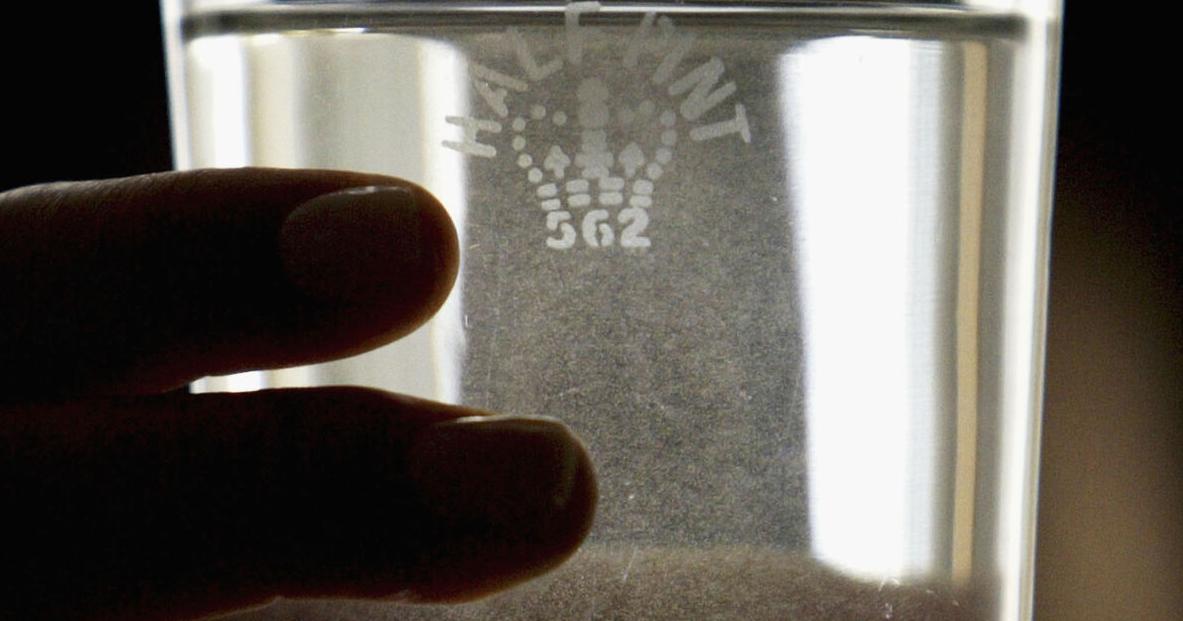Word of the week: Fluoridation. Should we allow our kids’ teeth to rot?

Despite opposition from dentists and national health organizations, Utah last month became the first state in the nation to ban fluoride in public drinking water, joining more than 170 municipalities in America that have done so based on health fears.
The ban, which takes effect May 7, comes just weeks after U.S. Health and Human Services Secretary Robert F. Kennedy Jr., who expressed skepticism about water fluoridation, was sworn into office.
The response of the American Dental Association: Utah lawmakers showed “wanton disregard for the oral health and well-being of their constituents.”
Utah is not alone. Lawmakers in Ohio, South Carolina and Florida, among other states, have introduced bills to restrict adding fluoride to public water supplies.
What is Kennedy’s expertise? He has no medical training or experience, and a history of spreading conspiracy theories. Even so, nothing stopped him from declaring: “Fluoride is an industrial waste associated with arthritis, bone fractures, bone cancer, IQ loss, neurodevelopmental disorders and thyroid disease” and that, as soon President Donald Trump took office, the “White House will advise all U.S. water systems to remove fluoride from public water.” Trump has instructed Kennedy to “go wild on health.”
If you were to ingest massive amounts of fluoride, it could cause some problems, but eating massive amounts of peanut butter would cause real problems. In fact, community water fluoridation has been proven to be safe and beneficial for about a century. And water fluoridation, which helps prevent tooth decay, is typically only at a concentration of one part per million of water — that’s about three drops in a 55-gallon barrel. But not in Berkshire County, where no public water supplies are fluoridated.
Municipal water supplies with fluoride currently serve nearly three out of four Americans. The first city to do so was Grand Rapids, Mich., in 1945. Within 11 years, tooth decay among that city’s children dropped by 60 percent. Nongovernmental organizations of health care providers champion community water fluoridation.
How about U.S. governmental agencies? They, too, support fluoridation. Among them are the U.S. Public Health Service, the Centers for Disease Control and Prevention and National Institutes of Health.
What about groups of dental professionals? Since dentists make money fixing cavities, why would they support water fluoridation? Wouldn’t the cynics amongst us expect dentists to oppose a measure that might reduce dentists’ income? No. Every group of dental professionals — dentists, dental educators, dental hygienists and dental assistants — support community water fluoridation.
Let’s bring this home to the Berkshires’ 32 municipalities and their 45 community water systems. Not one has added fluoride to its water supply. Check it out at the “My Water’s Fluoride” database on the CDC’s website.
Here’s why it matters: According to state data for Berkshire County, more than a third of Berkshire third-graders have tooth decay, and a quarter have untreated tooth decay. This disease and the resultant pain, disfigurement, missed school, and difficulty eating and speaking is concentrated in our low-income, minority and socially disadvantaged children — children who already have enough working against them.
The time has come for Berkshire towns and cities to rebuff calls to prevent fluoridation and join the community water systems serving a majority of Americans that offer this benefit.
Why any controversy about fluoridation? That’s the subject of next week’s column.


